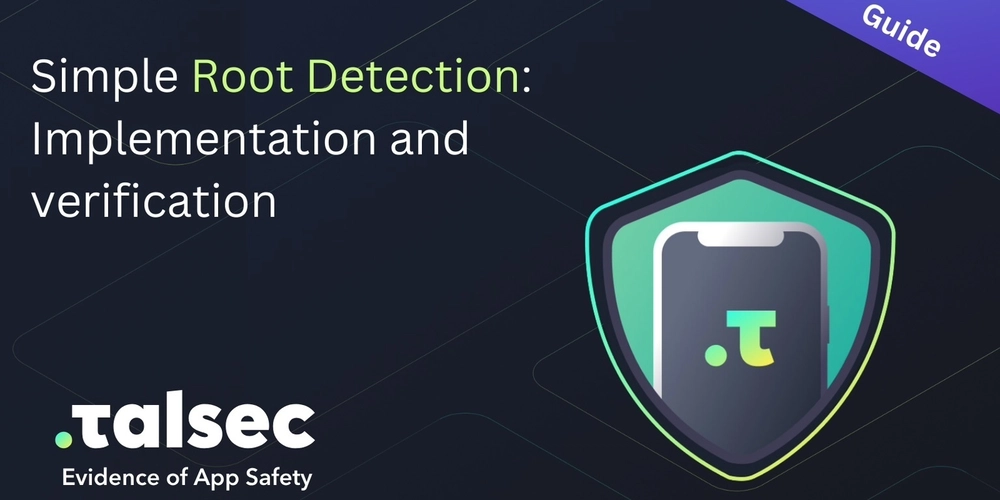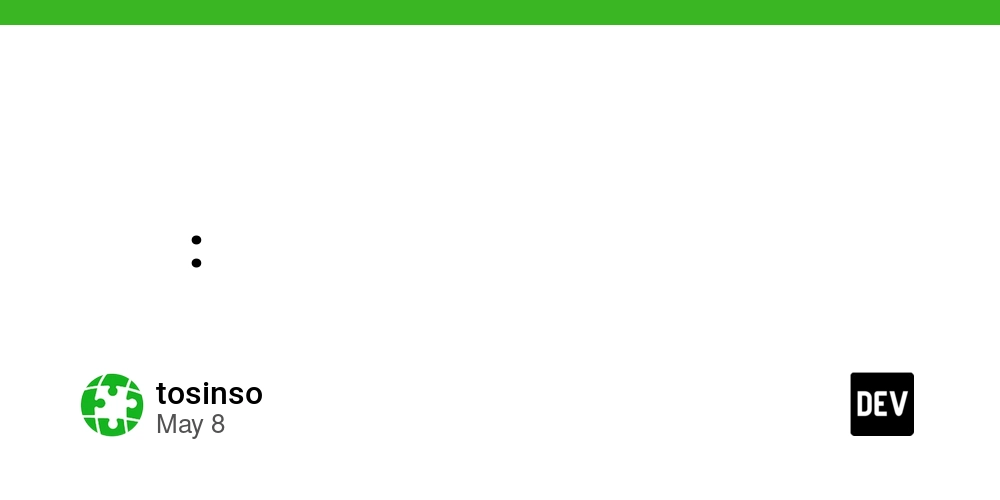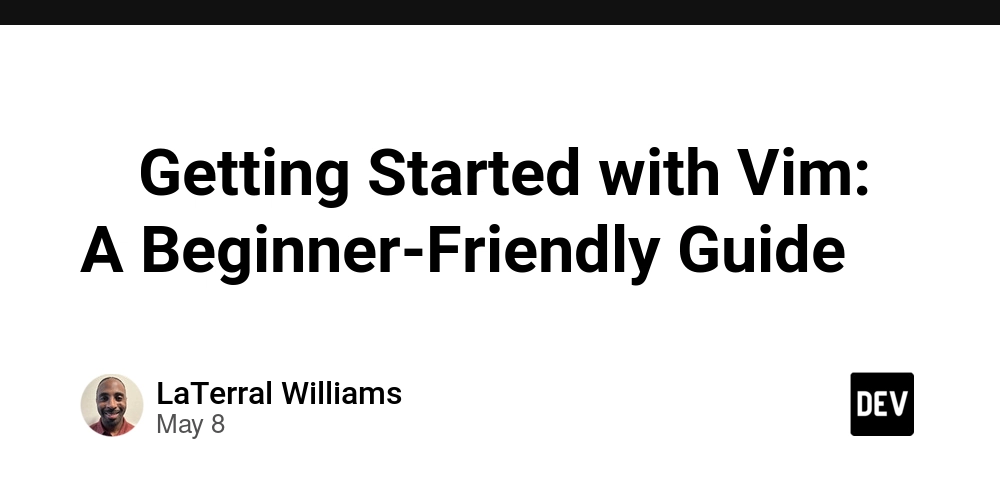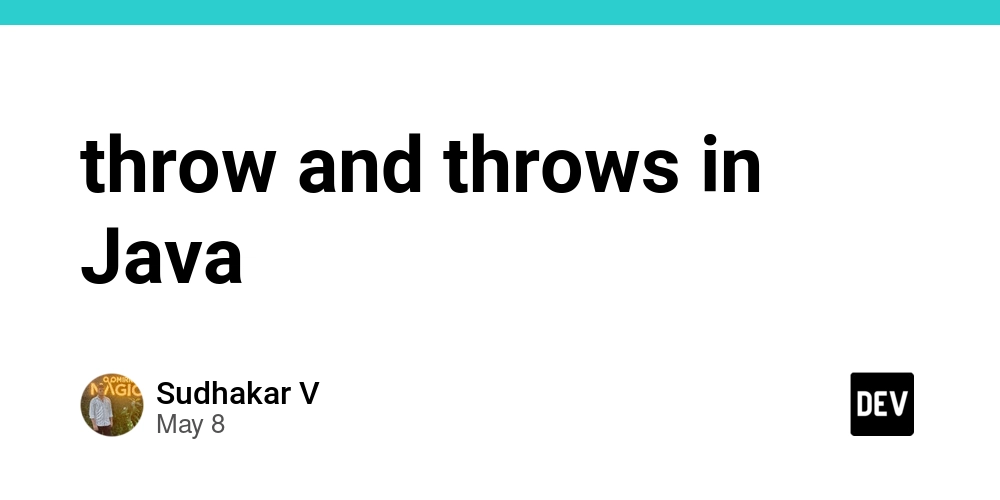Why and How to Patch a Python Package in Nix
I bumped into an annoying issue today while upgrading my Python dependencies in a codebase. And I thought it would be a good idea to share the solution with you. Thanks to Nix for making this kind of fix so straightforward. Admittedly, learning and getting used to Nix may take a while. But once you get the hang of it, you will be amazed by its power, flexibility and reliability. When I say reliability, I mean it: You can rely on Nix to look after you when you drop your guard. Let me show you how Nix can help you patch a Python package without having to pin your package to a specific but unreleased commit from upstream or maintaining a fork of it, and give you a bit of further reassurance that your patch is not going to break anything else in your codebase. Background of the Story I am maintaining a Python codebase that is based on Django and Django REST Framework (DRF). The codebase uses Nix for development, testing, CI/CD and packaging. DRF is quite stable and does not change often. The core author of DRF has declared DRF to be feature complete. Most development now focuses on bug fixes and keeping up with newer Django versions. After upgrading to DRF v3.16.0, our tests started failing. The issue was related partly to UniqueTogetherValidator and partly to nullable fields in unique-together constraints, which is a known limitation of DRF. Luckily, a PR was recently merged to DRF master that fixes a corner case of UniqueTogetherValidator. Unfortunately, there was no new release of DRF after the PR was merged, and the release cadence of DRF is quite slow nowadays. Problem I reviewed the PR that consisted of three commits and touched only 2 files. It was squash-merged into the master branch. There were a few other changes merged into the master before and after our PR was merged. The good thing was that none of the prior changes touched the files that were changed in the PR. Also, the change we were interested in was small and easy to reason about. Now, I had a few options: Use the master branch of DRF in my codebase. Overriding a Python package in nixpkgs is straightforward, but I did not want to assume responsibility for other commits. Fork the DRF repository as of the v3.16.0 release and apply the changes from the PR. I would avoid unintended consequences of other changes, but I do not want to maintain a fork of DRF, even for a short time. Pick the changes from the PR and apply them as a patch. But how? Solution The first two solutions are not ideal. The third solution is uncommon in the Python ecosystem. But if you're using Nix, patching Python packages becomes easy. So, let's see how to do that. Step 1: Create the Patch First, we need the patch. After checking out the DRF repository, I found the two commit hashes that I was interested in: ac50cec76c9fae76a01931d748e69d003dd79b94 -- the v3.16.0 release commit. 543996711d323722a1017e376619ae462a726ada -- the commit that was squashed-merged from the PR into the master branch. Then, I used git diff to create a patch file, but only for the files I was interested in: git diff \ ac50cec76c9fae76a01931d748e69d003dd79b94 \ 543996711d323722a1017e376619ae462a726ada \ -- rest_framework/validators.py tests/test_validators.py \ > djangorestframework_3.16.0.1.patch Step 2: Override DRF in Nix Package Set I moved the patch to my codebase, under ./nix/patches/python/. Here is how I applied it to the DRF package in nixpkgs: { ## TRUNCATED FOR BREVITY... ## Our base Python: python = pkgs.python312.override { packageOverrides = self: super: { ## See: https://github.com/encode/django-rest-framework/pull/9688 djangorestframework = super.djangorestframework.overridePythonAttrs (old: { patches = (old.patches or []) ++ [ ./nix/patches/python/djangorestframework_3.16.0.1.patch ]; }); }; }; ## TRUNCATED FOR BREVITY... } What it essentially does is to override the djangorestframework package in self (ie. the resulting package set) with an overridden one super (ie. the original package set). The override is achieved by calling the overridePythonAttrs on the original package. The only attribute that we are interested in is the patches. But we do not know if there are any patches already applied to the original package (old.patches). We should preserve them and append our patch to the list of patches. In case there are no patches applied to the original package, we use an empty list [] as a default value. Nice! We now have a patched version of DRF -- no need for a development version or a custom fork. Bonus: Nix's Safety Net Here is the most interesting part of the story. After I updated my flake.nix, I immediately entered the Nix shell to test the patch. But it took a few minutes for the Nix shell to be ready: Not only our patched DRF, but all dependent packages were also rebuilt instead of being used
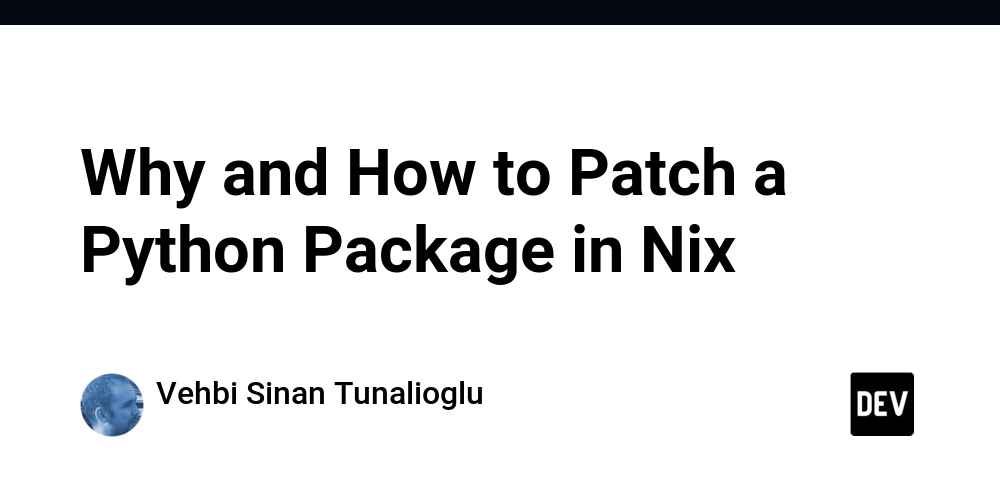
I bumped into an annoying issue today while upgrading my Python dependencies in a codebase. And I thought it would be a good idea to share the solution with you. Thanks to Nix for making this kind of fix so straightforward.
Admittedly, learning and getting used to Nix may take a while. But once you get the hang of it, you will be amazed by its power, flexibility and reliability. When I say reliability, I mean it: You can rely on Nix to look after you when you drop your guard.
Let me show you how Nix can help you patch a Python package without having to pin your package to a specific but unreleased commit from upstream or maintaining a fork of it, and give you a bit of further reassurance that your patch is not going to break anything else in your codebase.
Background of the Story
I am maintaining a Python codebase that is based on Django and Django REST Framework (DRF). The codebase uses Nix for development, testing, CI/CD and packaging.
DRF is quite stable and does not change often. The core author of DRF has declared DRF to be feature complete. Most development now focuses on bug fixes and keeping up with newer Django versions.
After upgrading to DRF v3.16.0, our tests started failing. The issue was related partly to UniqueTogetherValidator and partly to nullable fields in unique-together constraints, which is a known limitation of DRF.
Luckily, a PR was recently merged to DRF master that fixes a corner case of UniqueTogetherValidator. Unfortunately, there was no new release of DRF after the PR was merged, and the release cadence of DRF is quite slow nowadays.
Problem
I reviewed the PR that consisted of three commits and touched only 2 files. It was squash-merged into the master branch. There were a few other changes merged into the master before and after our PR was merged.
The good thing was that none of the prior changes touched the files that were changed in the PR. Also, the change we were interested in was small and easy to reason about.
Now, I had a few options:
- Use the
masterbranch of DRF in my codebase. Overriding a Python package innixpkgsis straightforward, but I did not want to assume responsibility for other commits. - Fork the DRF repository as of the v3.16.0 release and apply the changes from the PR. I would avoid unintended consequences of other changes, but I do not want to maintain a fork of DRF, even for a short time.
- Pick the changes from the PR and apply them as a patch. But how?
Solution
The first two solutions are not ideal. The third solution is uncommon in the Python ecosystem. But if you're using Nix, patching Python packages becomes easy.
So, let's see how to do that.
Step 1: Create the Patch
First, we need the patch.
After checking out the DRF repository, I found the two commit hashes that I was interested in:
-
ac50cec76c9fae76a01931d748e69d003dd79b94-- the v3.16.0 release commit. -
543996711d323722a1017e376619ae462a726ada-- the commit that was squashed-merged from the PR into themasterbranch.
Then, I used git diff to create a patch file, but only for the files I was interested in:
git diff \
ac50cec76c9fae76a01931d748e69d003dd79b94 \
543996711d323722a1017e376619ae462a726ada \
-- rest_framework/validators.py tests/test_validators.py \
> djangorestframework_3.16.0.1.patch
Step 2: Override DRF in Nix Package Set
I moved the patch to my codebase, under ./nix/patches/python/. Here is how I applied it to the DRF package in nixpkgs:
{
## TRUNCATED FOR BREVITY...
## Our base Python:
python = pkgs.python312.override {
packageOverrides = self: super: {
## See: https://github.com/encode/django-rest-framework/pull/9688
djangorestframework = super.djangorestframework.overridePythonAttrs (old: {
patches = (old.patches or []) ++ [ ./nix/patches/python/djangorestframework_3.16.0.1.patch ];
});
};
};
## TRUNCATED FOR BREVITY...
}
What it essentially does is to override the djangorestframework package in self (ie. the resulting package set) with an overridden one super (ie. the original package set). The override is achieved by calling the overridePythonAttrs on the original package. The only attribute that we are interested in is the patches. But we do not know if there are any patches already applied to the original package (old.patches). We should preserve them and append our patch to the list of patches. In case there are no patches applied to the original package, we use an empty list [] as a default value.
Nice! We now have a patched version of DRF -- no need for a development version or a custom fork.
Bonus: Nix's Safety Net
Here is the most interesting part of the story. After I updated my flake.nix, I immediately entered the Nix shell to test the patch. But it took a few minutes for the Nix shell to be ready: Not only our patched DRF, but all dependent packages were also rebuilt instead of being used from the cache!
Initially, I was a bit annoyed. Then I remembered that Nix is actually smarter than I am: My little patch to DRF was not just affecting the DRF package, but could impact all dependent packages as well. Nix always builds and checks each package and its dependencies once the hash of the package has changed. It does the right thing even when you forget to think about it.
These small but meaningful benefits are exactly why I love Nix.








